Foods to Avoid in Early Pregnancy: What You Should Know
During early pregnancy, it is crucial to be mindful of what you eat, as certain foods can pose risks to both you and your developing baby. You might not realize that raw or undercooked seafood, unpasteurized dairy, and processed meats could harbor harmful bacteria. Additionally, high-mercury fish and raw eggs are best avoided. It's also wise to limit caffeine and alcohol. But that's just the tip of the iceberg—understanding which fruits and vegetables might also be problematic can make a significant difference. What else should you be cautious about?
Raw or Undercooked Seafood
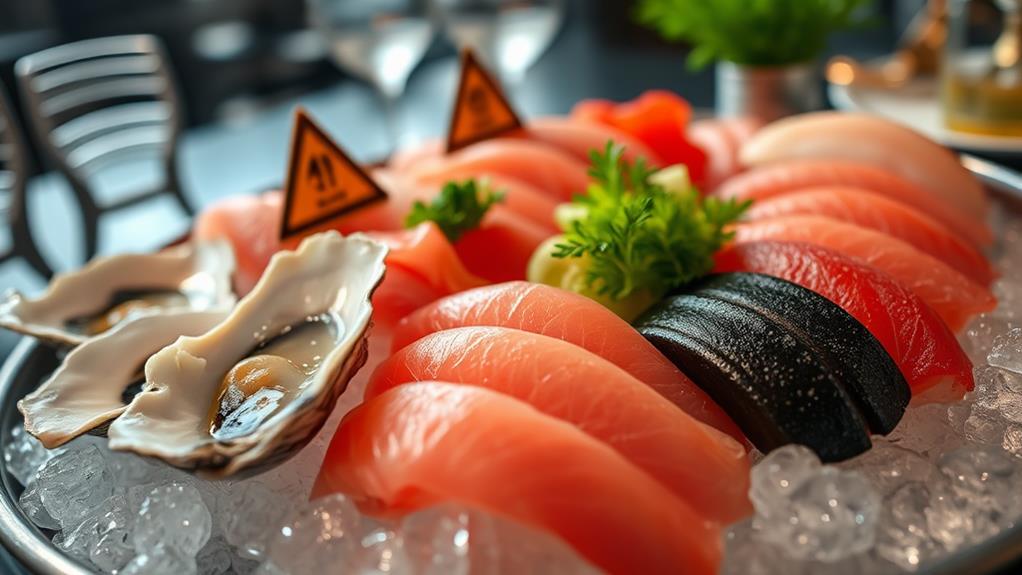
When it comes to your diet in early pregnancy, avoiding raw or undercooked seafood is essential. You might be tempted by sushi or that delicious shrimp cocktail, but it's better to skip them for now. Raw seafood can harbor harmful bacteria and parasites that can affect both you and your growing baby. Yikes, right?
Eating undercooked fish or shellfish can lead to serious foodborne illnesses like listeriosis or salmonella. These illnesses can cause complications during pregnancy, so it's best to play it safe.
Cooked seafood, however, is a healthy choice! It's packed with nutrients, like omega-3 fatty acids, which are great for your baby's brain development. Just make sure it's thoroughly cooked.
If you're at a restaurant and the menu looks tempting, don't hesitate to ask about how they prepare their seafood. Your health and your baby's health come first.
So, say goodbye to that sushi platter for a little while, and stick to deliciously cooked options. You can always celebrate later with a nice seafood dish once your little one arrives.
Unpasteurized Dairy Products
Unpasteurized dairy products might seem like a trendy choice, but they're best avoided during early pregnancy. You might wonder why something as innocent as milk could be a problem. Well, unpasteurized dairy can contain harmful bacteria like Listeria, which can make you sick and pose risks to your baby. Nobody wants that!
When you're pregnant, your immune system is a bit weaker, making you more susceptible to infections. So, skipping the raw milk cheese and unpasteurized yogurt is a smart move.
You can still enjoy delicious, creamy dairy by choosing pasteurized options. They go through a heat process that kills off those pesky bacteria, keeping you and your little one safe.
If you're craving cheese, go for things like cheddar or mozzarella that are pasteurized. And don't worry, you won't miss out on flavor!
You can also opt for pasteurized milk and yogurt, which are packed with nutrients you need during this special time.
Processed Meats
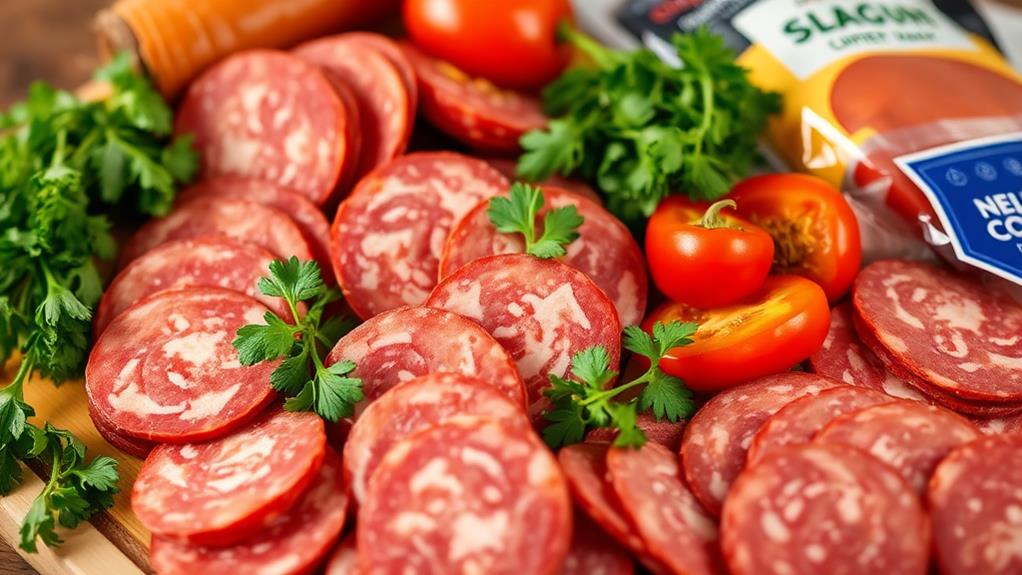
Processed meats can be tempting, but they're best left off your plate during early pregnancy. You might love a good hot dog or some deli slices, but these foods can pose risks.
Processed meats, like bacon, sausages, and lunch meats, often contain harmful bacteria, like Listeria, which can be dangerous for you and your baby.
These meats are also loaded with preservatives and sodium, which aren't the healthiest choices when you're trying to eat for two. High salt levels can lead to swelling and high blood pressure, and who wants that?
Plus, some studies suggest that eating processed meats might be linked to other health issues.
High-Mercury Fish
Although fish is often touted as a healthy protein source, you should steer clear of high-mercury varieties during early pregnancy. Mercury is a harmful metal that can affect your baby's developing nervous system. Some fish, like shark, swordfish, and king mackerel, contain high levels of mercury. Eating these can be risky, so it's best to avoid them altogether.
You might be wondering what to eat instead. Good news! There are plenty of low-mercury fish options that are safe and healthy. Salmon, tilapia, and shrimp are great choices. They're not only delicious but also packed with nutrients that you and your baby need.
Just remember to cook them thoroughly to keep everything safe.
When you're at the seafood counter or ordering at a restaurant, don't be shy! Ask questions about the fish. It's your health and your baby's health on the line.
Plus, it's always a good idea to check local advisories if you're catching fish yourself.
Raw Eggs
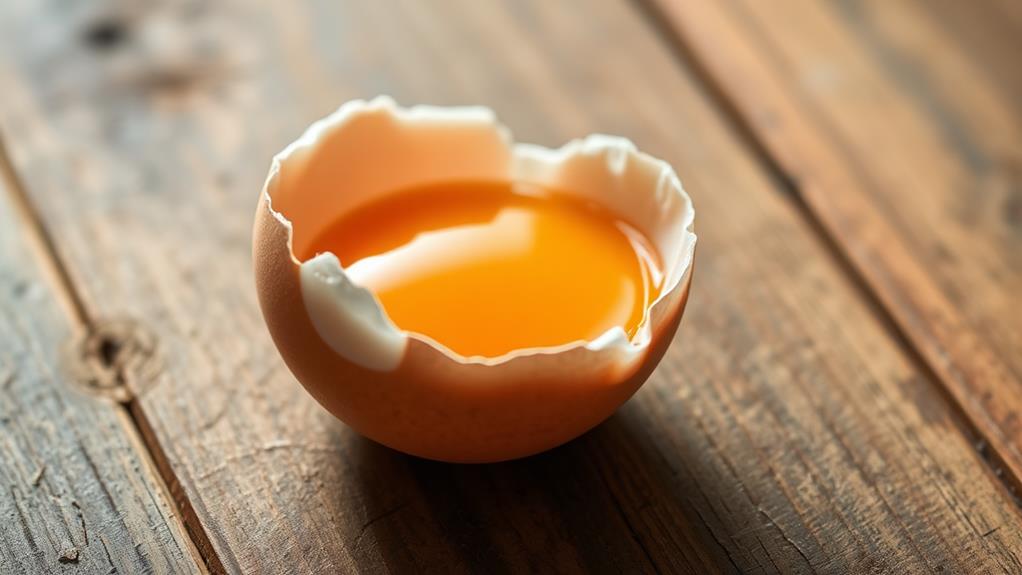
Many expectant mothers may not realize that consuming raw eggs can pose serious risks during early pregnancy. You might love a good homemade Caesar salad or a fluffy meringue pie, but those recipes often call for raw eggs.
The problem is that raw eggs can contain harmful bacteria, like Salmonella. If you eat them, you could end up with a nasty foodborne illness, which isn't great for you or your little one.
When you're pregnant, your immune system is a bit more vulnerable. So, getting sick from something as simple as a raw egg isn't just a minor inconvenience; it could lead to complications. You want to keep both you and your baby safe, right?
Instead of risking it, consider cooking your eggs until they're firm. Scrambled, boiled, or poached eggs aren't only delicious but also packed with protein and nutrients that are good for you.
Plus, they're totally safe! So, the next time you're tempted to whip up that classic recipe with raw eggs, remember: it's better to play it safe. Your baby will thank you for it!
Caffeine and Alcohol
When it comes to what you eat and drink during early pregnancy, caffeine and alcohol are two major concerns. You might be used to that morning cup of coffee or an evening glass of wine, but now's the time to rethink those habits.
Caffeine can sneak into your diet through coffee, tea, sodas, and even chocolate. While a little caffeine isn't usually harmful, experts suggest limiting it to about 200 milligrams per day—about the amount in one 12-ounce cup of coffee. Too much caffeine might increase your risk of miscarriage or low birth weight, so it's best to be cautious.
Now let's talk about alcohol. You may have heard the saying "a little won't hurt," but when it comes to pregnancy, it's safer to steer clear altogether. Drinking alcohol can harm your baby's development, leading to issues like fetal alcohol syndrome.
Certain Fruits and Vegetables
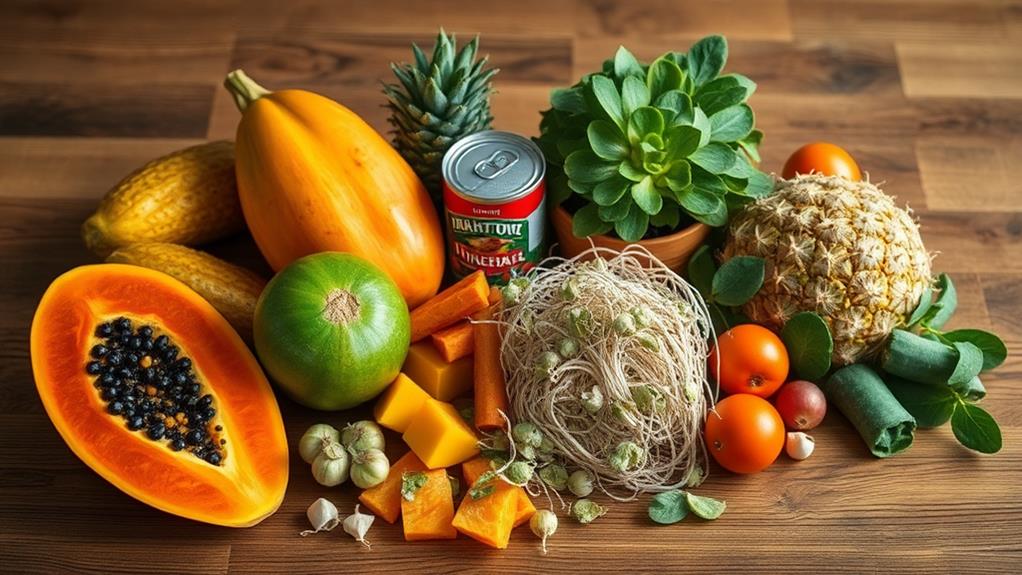
Certain fruits and vegetables can pose risks during early pregnancy, so it's important to be selective about what you consume. You might think that all fruits and veggies are healthy, but some can actually be trouble.
For instance, unwashed produce can carry harmful bacteria like Listeria or Salmonella, which you definitely want to avoid. Always wash your fruits and vegetables thoroughly to keep those pesky germs at bay.
Additionally, some fruits, like papaya and pineapple, contain enzymes that might trigger contractions if consumed in large amounts. While you don't have to steer clear entirely, moderation is key.
You should also be cautious with sprouts. They might look cute and crunchy, but they can harbor bacteria. Cooking them can help make them safer to eat.
Lastly, be aware of certain exotic fruits, like durian, which mightn't sit well with everyone. Your tummy's sensitive right now, so listen to it!
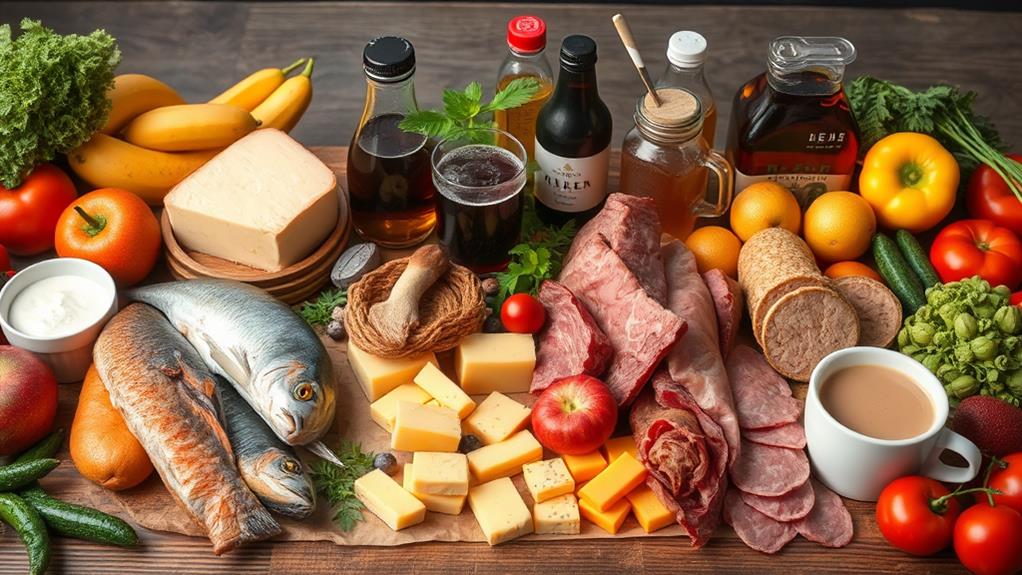

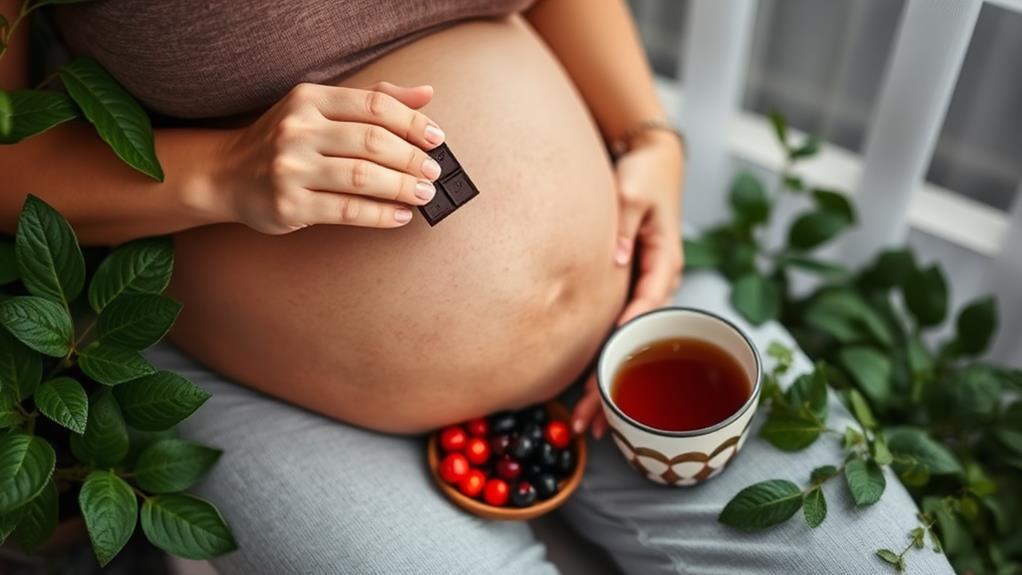











Post Comment